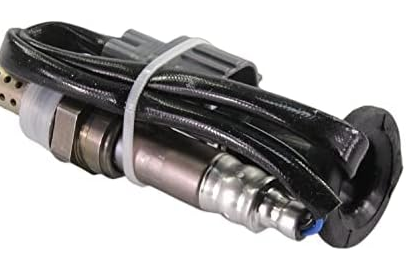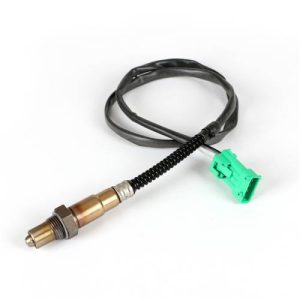Your cart is currently empty!
What are the 3 common causes of oxygen sensor failure?How to Prevent Your oxygen sensor failure?
As a seasoned writer in the automotive news sector, we embark on a journey to decipher the intricacies of oxygen sensor failure. In this article, we delve into the three prevalent causes behind oxygen sensor failure and offer expert strategies to prevent this common automotive issue.

The Common Culprits Behind Oxygen Sensor Failure
Cause one of oxygen sensor failure:Contaminants Buildup.Over time, contaminants such as oil, fuel, and coolant residues can accumulate on the surface of the oxygen sensor. This buildup can impede the sensor's ability to accurately measure oxygen levels in exhaust gases, leading to poor engine performance and increased emissions.
Cause two of oxygen sensor failure:Sensor Age and Wear.Like all components, oxygen sensors have a finite lifespan. As they age, the sensor's internal components can degrade, affecting its accuracy and responsiveness. An older sensor might not provide reliable readings, leading to potential engine problems.
Cause three of oxygen sensor failure:Excessive Heat and Thermal Shock.Oxygen sensors are exposed to high temperatures in the exhaust system. Rapid cooling, such as driving through water after the engine has heated up, can subject the sensor to thermal shock, causing internal damage and reducing its efficiency.
Strategies to Prevent Oxygen Sensor Failure
Regular Maintenance: Adhering to your vehicle's recommended maintenance schedule is paramount. Routine engine check-ups can identify potential issues before they escalate, preventing premature oxygen sensor failure.
Quality Fuel: Opt for high-quality fuel to minimize the buildup of contaminants that can compromise the sensor's functionality. Clean fuel contributes to a cleaner and healthier sensor.
Avoid Excessive Heat: While it's impossible to entirely shield the oxygen sensor from heat, avoid sudden thermal shocks. Refrain from driving through deep water when the engine is hot to prevent potential damage.
Replace When Necessary: Keep track of your vehicle's mileage and the age of its oxygen sensors. If your vehicle exhibits symptoms of a failing sensor or reaches the manufacturer's recommended replacement interval, consider a timely replacement.
The Implications of Preventing Oxygen Sensor Failure
By taking proactive measures to prevent oxygen sensor failure, you're not just preserving your vehicle's performance – you're also contributing to a cleaner environment. A well-maintained sensor helps ensure efficient combustion, reduced emissions, and optimal fuel efficiency.
Conclusion
In conclusion, understanding the root causes of oxygen sensor failure empowers vehicle owners to take preventive action. By addressing contaminants, aging, and thermal stress while following expert strategies, you can prolong the lifespan of your oxygen sensors and foster a healthier driving experience. Remember, prevention is not just about avoiding issues; it's about enhancing your vehicle's performance and environmental responsibility.






Leave a Reply